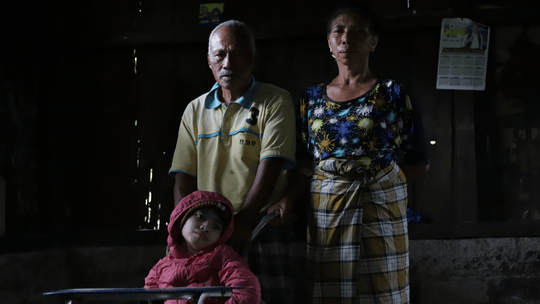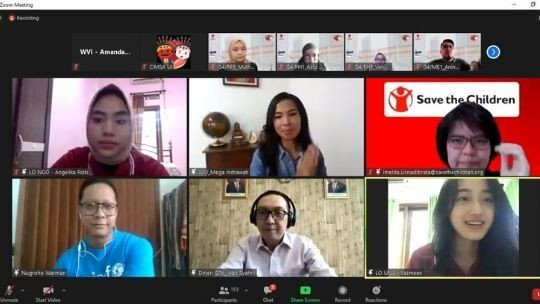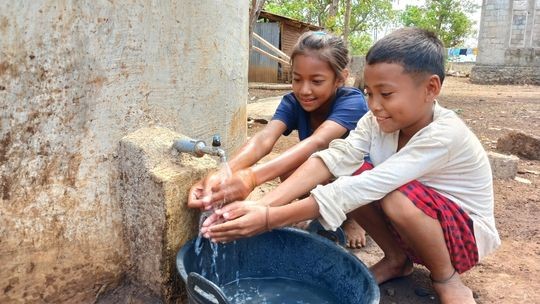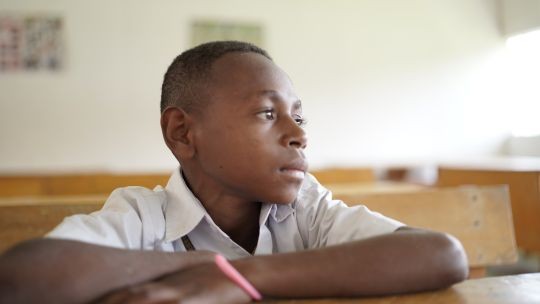Discover the Importance of Inclusive Education for Children Who Receive Donations

Every child has the right to an education, regardless of their social background, economic status, or physical and mental condition. However, the reality is that many children still struggle to access proper schooling.
This is especially true for those from low-income families or with special needs. Economic barriers, limited facilities, and a lack of understanding of inclusive education often become the main obstacles for these children.
Inclusive education offers a solution to ensure every child receives their right to an education. This concept aims to create a learning environment that is welcoming and accessible to all children. Inclusive schools are designed to adapt teaching methods to suit the needs of each student, allowing them to develop according to their potential.
However, making inclusive education a reality isn't easy. Many schools still lack adequate facilities and infrastructure to support children with special needs.
For example, not all schools have teachers trained in inclusive teaching methods or supporting facilities like accessibility for children with physical disabilities.
Furthermore, for children from low-income families, economic limitations often become the primary barrier to getting an education. School fees, books, uniforms, and daily necessities often cause them to drop out.
One way to help achieve inclusive education is through child donations. These donations can take various forms, such as funds to cover their education, provision of school supplies, or food assistance.
Many social institutions and non-profit organisations focusing on inclusive education raise funds to help children in need. So, why is this important?
Why is Inclusive Education Important?
In many regions, numerous children struggle to gain access to proper education. Some of these challenges stem from economic factors, limited facilities, or even social stigma. Without inclusive education, children with great potential don't get the chance to develop their abilities. This is why inclusive education needs to be supported by various parties, including through child donation programmes that help overcome these obstacles.
Inclusive education isn't merely about providing a space for children with special needs or from low-income families to attend school. More than that, inclusive education aims to create an environment that embraces diversity and provides support. This means the support is needed so that every child can develop optimally. Through child donation programmes, more children can receive a decent and quality education.
Benefits of Inclusive Education for Children Receiving Donations
When children learn in an inclusive environment, they don't just gain knowledge; they also develop better social skills. They learn about tolerance, empathy, and how to interact with friends from diverse backgrounds.
This kind of environment helps shape them into individuals who are better prepared for life in society. Well-managed child donation programmes ensure that children receive educational support tailored to their needs.
For example, children with special needs can get assistant teachers, learning aids, and a supportive environment that maximises their development. Meanwhile, children from low-income families can receive assistance in the form of scholarships, school uniforms, and other learning supplies.
Challenges in Implementing Inclusive Education
While inclusive education is crucial, there are still many challenges in its implementation. One of the biggest challenges is the lack of facilities and trained teaching staff to handle the diverse learning needs of children. Many schools don't yet have a curriculum that supports inclusive education, meaning children who need more attention often struggle to keep up with lessons.
Furthermore, social stigma remains a significant barrier. There's still a perception that children with special needs or those from impoverished families can't attend the same schools as other children. However, with the right teaching methods, every child can develop according to their potential. This is where child donations play a vital role. Through financial support from the public, schools can improve the quality of inclusive education.
This can be achieved by improving infrastructure, providing competent teachers, and ensuring every child has equal access to education.
The Role of Donations in Supporting Inclusive Education
For inclusive education to work well, support from various sources is essential. One of the best ways to help is by donating to programmes focused on inclusive education. Child donations can be used to provide better learning facilities, training for teaching staff, and support for children who need extra help with their learning.
The assistance provided through child donation programmes can vary widely, from supplying learning aids and improving school infrastructure to offering scholarships for less fortunate children. With this support, more children can get a quality education without facing economic or social barriers.
One programme that has been very effective in supporting inclusive education is the Child Sponsorship Programme from Wahana Visi Indonesia. With a contribution of Rp 250,000 per month, this programme ensures the aid given benefits not just one child but their entire community. The funds collected are used to meet needs for education, access to clean water, nutrition, healthcare, and child protection. This approach aims to create sustainable change without fostering dependency.
Long-Term Benefits of Inclusive Education
Inclusive education doesn't just benefit the children receiving assistance; it also helps society as a whole. When more children get access to proper education, they have a greater chance of finding employment and improving their quality of life in the future.
Naturally, this leads to a reduction in poverty rates and an increase in overall social well-being. Furthermore, inclusive education shapes a more open and accepting society that values differences. Children who grow up in inclusive environments learn to cooperate with others regardless of their backgrounds. This is crucial for creating a more harmonious and just world.
Join the Inclusive Education Movement!
Making inclusive education a reality isn't just the responsibility of the government or educational institutions; it's up to all of us. By donating through Wahana Visi Indonesia, you can help create a more inclusive learning environment for children in need. Every contribution you make will help provide better educational facilities, support teaching staff, and ensure no child is left behind in their education.
As a sponsor, you'll receive a Welcome Pack including a profile and photo of your sponsored child, a programme guide, and information about the assisted area. Within 120 days, your sponsored child will send an introductory letter. Sponsors also have access to the MYSPONSORSHIP portal to monitor the progress of their child and community through annual reports. Additionally, sponsors can communicate with their child via letters or gifts, and even visit them in person.
Wahana Visi Indonesia emphasises transparency with regular audits and annual reports sent to sponsors. During special occasions like birthdays or holidays, sponsors are encouraged to send cards or gifts. This programme allows sponsors to bless children without separating them from their families, providing a meaningful experience for both parties.
Don't let limitations be a barrier to their future. Come on, join the inclusive education movement and help more children get their right to learn through child donation programmes!



